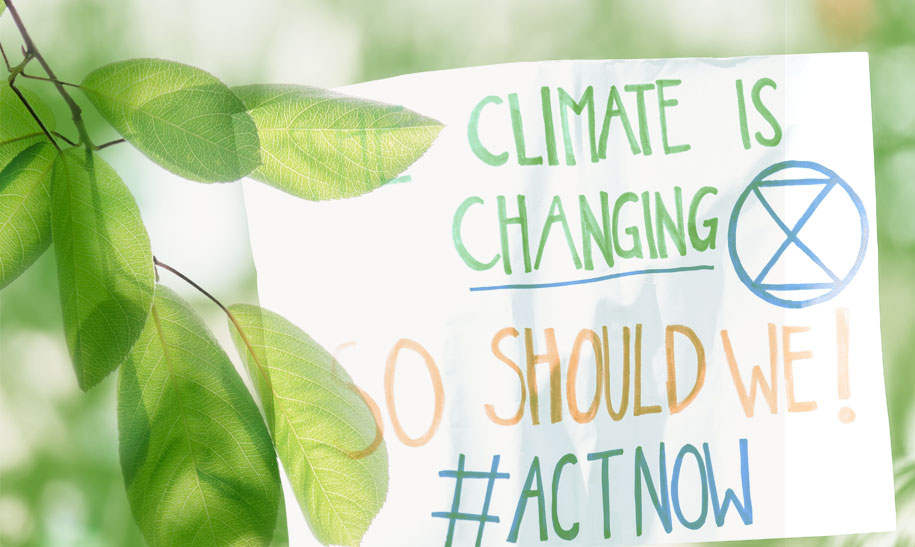The next time you see your physician, consider discussing the impact that climate change and environmental hazards are having on your health. While the interactions of human health and the environment are complex, we are seeing dynamic and interacting forces that span from the level of personal to global. One of the world’s oldest and most respected medical journals, The Lancet, has referred to climate change as the “biggest global health threat of the 21st century.”
Although you may not feel that you are directly or personally affected by these issues, the list of health issues linked to climate change is lengthy and growing, impacting many aspects of our lives, from pregnancy to child development to aging. Additionally, as some communities are impacted more than others, depending on their location, social and financial situations, this issue may compound inequality.
There are significant impacts of climate change on the brain, heart and gut:
Brain Health
We are seeing an epidemic of neurologic diseases that are directly related to the environment, such as chronic headaches, increased dementia, and, most notably, Parkinson’s disease. The fastest-growing of all neurological disorders, Parkinson’s Disease, has seen a doubling in population since 1990, often occurring now in younger patients. The book Ending Parkinson’s Disease details the significant contribution that environmental toxicants such as solvents and pesticides make in the development of this disease and some of the action we can take to protect ourselves.
Cardiometabolic Health
While we may think immediately about the impact of air quality and pollution on our lungs, what many miss is the connection of climate change and the environment to cardiovascular disease. Air pollution can impact the cardiovascular system through fine particulate matter that causes endothelial destruction or acting through endocrine disruption, which contributes to obesity and diabetes. According to the World Health Organization, air pollution is the cause of 25% of deaths from heart disease, and 24% of deaths from stroke.
Gut Health
I am deeply concerned about the impact that climate change and environmental pollutants are having on the diversity of the human (gut) microbiome, as it is foundational to health. Not unlike the decrease in diversity of the natural world (the extinction of plants and animals), the same is happening to the microbes in our soil and gut. While many are aware of the impact that C-sections, infant formula, the overuse of antibiotics and poor and low fiber diets have on the microbiome, the insidious and global impacts by pollution and negative environmental pressures are altering diversity and showing results in neurologic development (such as autism), immunity and autoimmunity, along with metabolic changes that are thought to be linked to these changes. Equally alarming is the fact that key microbes may become extinct before we even know their function.
Why are we not doing more about this issue?

I wish I had a definitive answer to this question. Perhaps we are numb, overwhelmed, confused, or just struggling to keep up with daily news about the pandemic, fires, and floods – each of which is intimately tied to climate change and the environment, but the impact wears off as the news headlines continually change.
There seems to be a parallel between the slow decline in global health and that of the planet, and, like many people, these “symptoms” or warning signs are not considered problematic until they become life-threatening. Until recently, we have assumed that our planet will support our health and that its inhabitants will tend to the social, political, and medical needs of others. But as we push up against the boundaries of what the Earth can sustain and fill our atmosphere with pollution and greenhouse gases, the planet is beginning to push back.
How can we stay healthy when our planet is sick?
The severity of this problem cannot be overstated, and many in the medical community are recognizing this and taking action, making their concerns known on every level, ranging from local leaders to Washington DC. We have an ethical and moral responsibility to preserve the health of the Earth. After all, the planet supports and sustains the health of our patients, the very people we heal from cradle to grave. We need to speak up and take a stand for a healthy future.
Worth Reading
Benesh, Melanie, Trump’s Toxic Wake: 10 Ways the EPA has Made Life More Hazardous, EWG/2020
Bloem MD, PhD, Bastiaan R., Dorsey MD, Ray, Okun MD, Michael S., Sherer PhD, Todd, Ending Parkinson’s Disease: A Prescription for Action, Public Affairs/2020
Bournemouth University, Is Modern living leading to a ‘hidden epidemic’ of neurological disease?, ScienceDaily/2015.
Holden, Emily, Climate Change is Having Widespread Health Impacts, Scientific American/2019
World Heart Federation, Air Pollution and Cardiovascular Disease, World Heart Federation/2019


